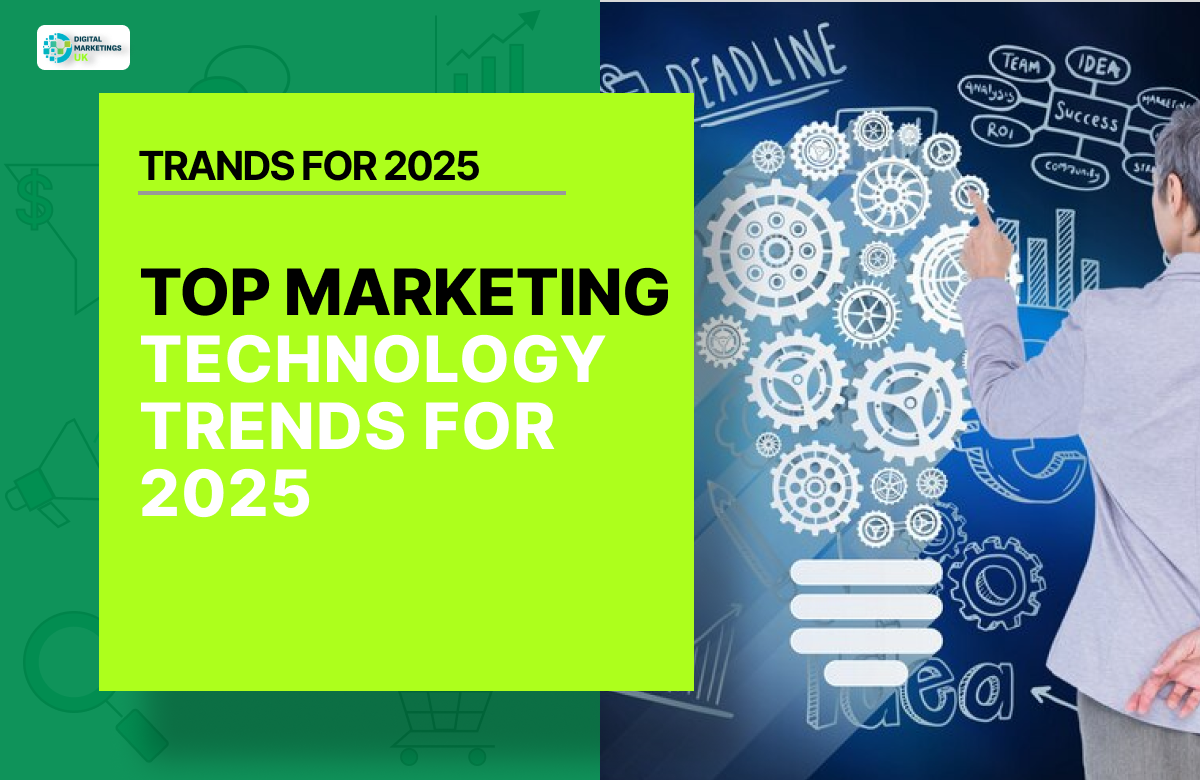MarTech is a fast-growing segment in the global market space due to advancing technologies, shifting customer trends, and the growing pressure for organizations to adapt to ever-changing market conditions. Several trends that define the future of digital marketing are identifiable as businesses prepare for 2025. According to Digital Marketings UK, the following is a list of MarTech trends to watch shortly.
Artificial Intelligence (AI) and Machine Learning (ML) Integration
AI/ML are “creeping” into the marketing world and by the year 2025 their impact on the marketing process will be even more significant. These technologies are going to take a pivotal position in managing customer experiences to an extent which had never been imagined before. Machine learning and artificial intelligence solutions will employ real-time data processing to come up with anticipated consumer behaviour. And create efficient campaign paths, as well as present customized content.
Whether it is in the creation of chatbots or automating the generation of content. The roles of AI and machine learning are designed not only to just perform repetitive tasks. But to do so while generating more insights into consumers and their preferences that will help marketing professionals in their problem-solving and decision-making processes. Advanced technologies in business intelligence for segmenting customers, advanced data analytics or the dynamic pricing mechanism will foster competitiveness and enhance a company’s return on investment.
Voice Search Optimization
As voice-activated devices such as smart speakers (including Amazon Alexa or Google Assistant) become more commonplace. Voice search will become an absolute necessity in regal digital marketing campaigns. Estimations make it possible to state that as many as 50% of all the search queries entered online will be performed in voice mode by 2025. Many firms will have to fully integrate conversational search queries into their SEO tactics for future use because conversational search queries are not text-based.
Voice search comes as a consequence in answering questions directly and concisely. This means that marketers must start paying more attention to how the NLP is structured. This will put more emphasis on FAQ-style content, schema markups, and the use of mobile because most of the voice searches are done on mobile.
Augmented Reality (AR) and Virtual Reality (VR) Experiences
Pioneering industries such as retail or real estate, as well as travel, and tourism. Entertainment will witness significant growth in augmented reality and virtual reality marketing capabilities by 2025. AR and VR technologies will enable consumers to engage with the brand in an augmented way. And hence provide experiences that are difficult to distinguish from reality.
AR application in retail will enable customers to see how different clothes will fit them or where furniture will fit in the house before purchasing them. Likewise, VR will provide the execution of such functionality as virtual stores or 360° product demonstrations. This trend will not only increase customer interactions but will also offer brands an application to monitor consumers’ interactions within such settings.
5G and Enhanced Mobile Marketing
The availability of 5G networks globally which is set to continue will affect mobile marketing strategies by 2025. The use of 5G will allow users to access enhanced content and much more vibrant experiences as contrasted to the traditional stabilizations on mobile devices. It will help open new opportunities for the use of videos in marketing, real-time communication, and interactive content in such fields as live streaming of events, or video games.
Marketers will also be able to take advantage of 5G’s capacity to market hyper-targeted and real-time dynamic ad content based on user preferences, location, and activities. Improved mobile marketing will also increase and expand the possibilities for businesses to utilize geo-location data and proximity marketing to make consumers promotions and offers when they are on the move.
Blockchain Technology for Data Privacy and Transparency
With the rise of data privacy issues, blockchain will have increasing appeal for marketers looking for a solution to increase the transparency and security of their businesses. Blockchain option of decentralization allows to guarantee the data integrity and give the users better control of their data.
In terms of marketing, this has the potential to open up a whole new level of ability to build trust with consumers. By giving them a high degree of control over the usefulness of their information and the privacy of that information. Blockchain can also be adapted to fight fraud in advertising because it will guarantee transactions between advertisers. And the publishers are clear, and this will enhance the success rate of digital advertising.
Hyper-Personalization and Real-Time Marketing
Consequently, it will be impossible for any company to afford not to embrace hyper-personalization by 2025. If they are to deliver a proper communication strategy for their audiences. With the help of Big Data and through the use of AI and ML. Marketers will be able to finally create highly relevant content and build unique customer experiences in real-time.
He wrote that this trend will go beyond the argumentative use of first names in emails and instant messages with customers. Consumers will be able to provide marketers with controlled access to his/her day-to-day life. And share specific behaviours, preferences, locations, and even past actual. And perceived experiences of interacting with a brand across many different media touchpoints. Real-time Digital Marketings UK will enable a business to respond to customers’ behaviours and feelings in an instant making it more personal.
Influencer Marketing Evolution
Influencer marketing will remain a significant marketing strategy. But by the year 2025, it will be more analytics and more honest. Influencers are not book authors, actors, singers and models. But rather people with a certain number of subscribers in their field of specialization. They are right in suggesting that AI tools will make it easier for marketers to identify the right influencers to work with as they are youths. Who support marketers’ brand values and appeal to the targeted consumers.
Furthermore, the brands shall require tangible values from the alliances as well as engagement statistics like the levels of engagement, sales metrics and ROI. Thus, the new trend for data-driven influencer marketing adoptions will result in increased effectiveness and accountability. And brand authenticity in influencers’ sponsorships.
Automation and Chatbots for Customer Engagement
Digital Marketings UK automation will continue to grow in importance. With tools becoming more sophisticated and integrated into various marketing channels. Automated workflows, AI-driven chatbots, and predictive analytics will help marketers. Engage with customers at the right moment in their journey. Guiding them through personalized experiences with minimal human intervention.
Chatbots, powered by natural language processing (NLP), will become even more advanced. Providing personalized customer service, answering questions, and even assisting with sales. By 2025, these technologies will be able to handle more complex interactions. Making customer engagement more efficient and effective.
Final Verdict
The MarTech landscape in 2025 will be defined by advancements in AI. Voice search, AR/VR, 5G, blockchain, and hyper-personalization. Marketers who embrace these technologies and trends will be better equipped to meet the evolving expectations of their audiences. And deliver more impactful, data-driven experiences. Businesses will need to remain agile, continuously adopting new tools. And strategies to stay competitive in an increasingly complex and dynamic digital environment.



